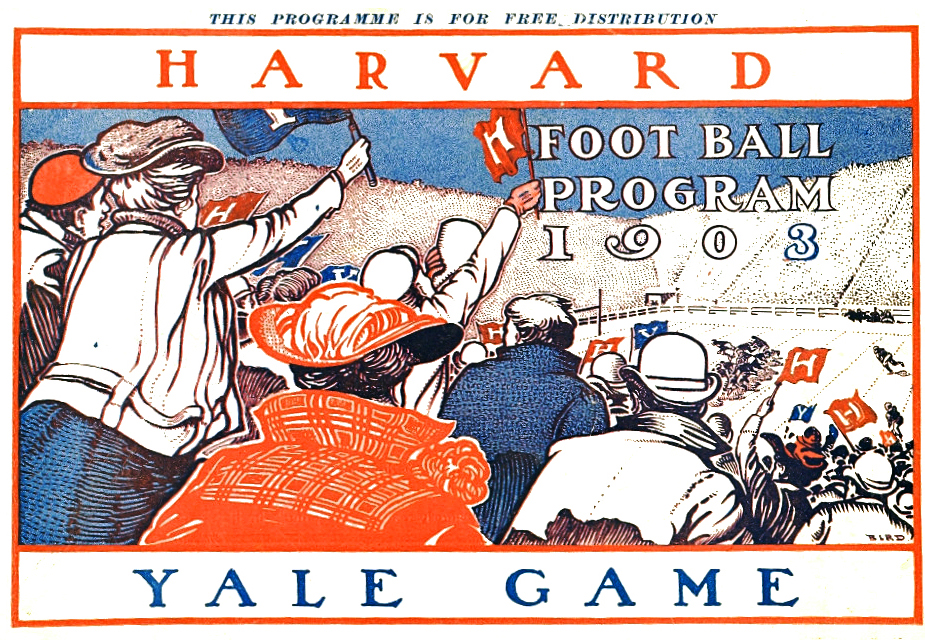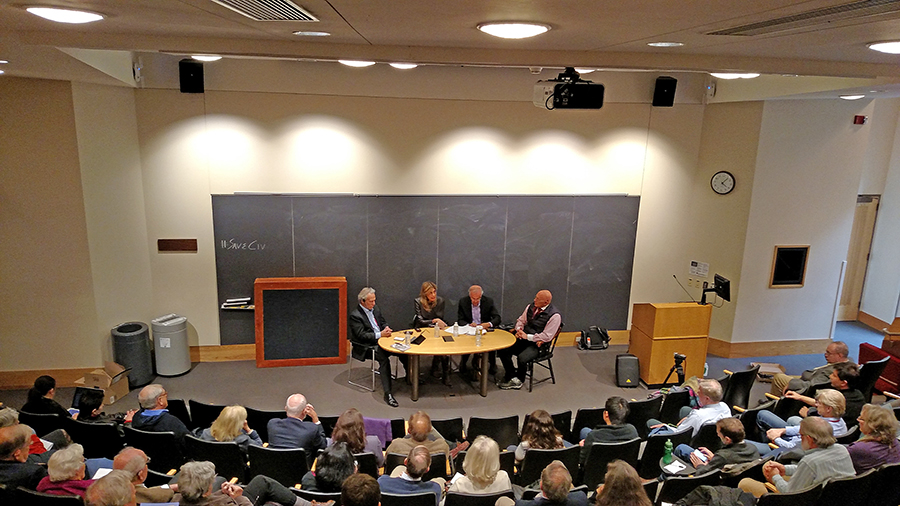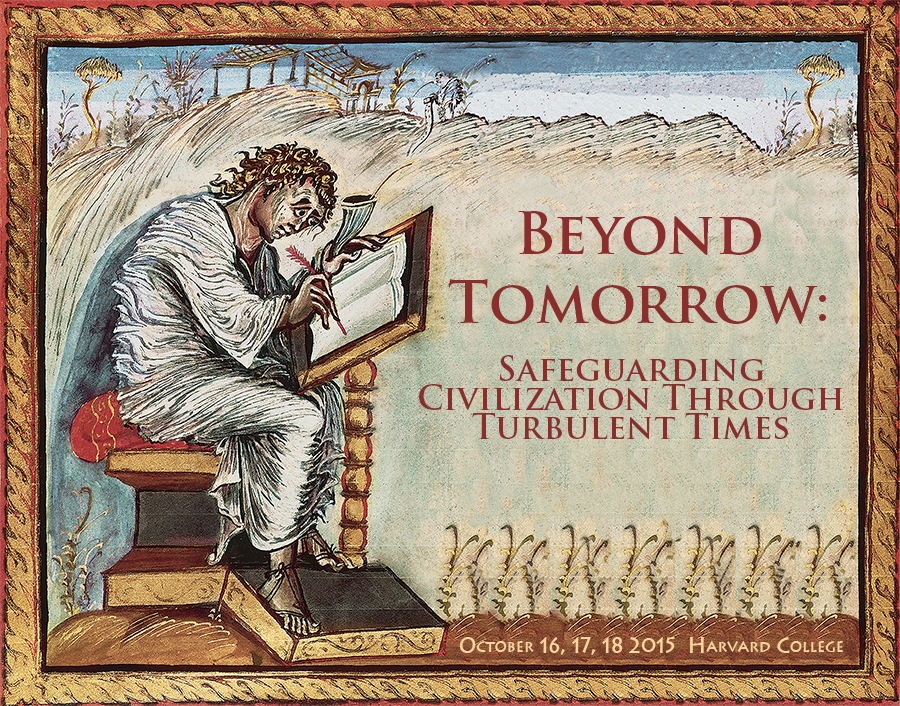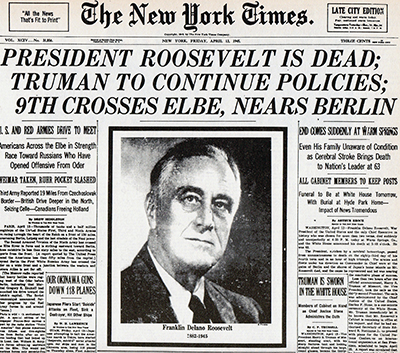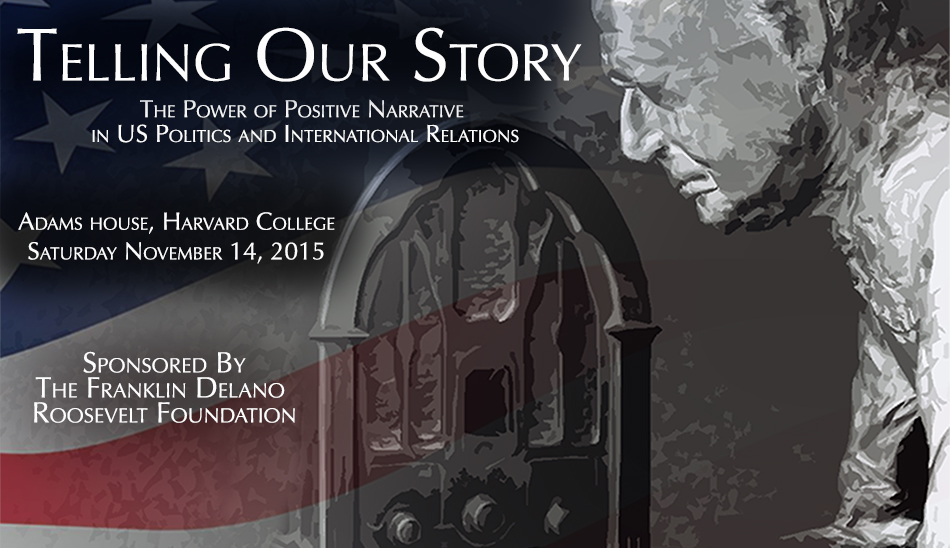 On March 12 1932, America was in crisis: banks closed, industries shut down, many millions thrown out of work. Desperate bands roamed the countryside in search of food and shelter. Worse still, in large sections of the country the weather had changed violently, covering once productive fields and towns with vast quantities of dust that choked out every living thing. People were frightened. It seemed that the very edifice of government was beginning to crumble. But one man was not afraid. That evening, in a calm and steady voice, he sat down to speak to the American people, directly: “I want to talk for a few minutes with the people of the United States…,” he began. “I want to tell you what has been done in the last few days, why it was done, and what the next steps are going to be.”
On March 12 1932, America was in crisis: banks closed, industries shut down, many millions thrown out of work. Desperate bands roamed the countryside in search of food and shelter. Worse still, in large sections of the country the weather had changed violently, covering once productive fields and towns with vast quantities of dust that choked out every living thing. People were frightened. It seemed that the very edifice of government was beginning to crumble. But one man was not afraid. That evening, in a calm and steady voice, he sat down to speak to the American people, directly: “I want to talk for a few minutes with the people of the United States…,” he began. “I want to tell you what has been done in the last few days, why it was done, and what the next steps are going to be.”
With that simple start, Franklin Delano Roosevelt began to heal a wounded nation. He accomplished this in no small part through the use of positive narrative — ‘storytelling’ — the hallmark of successful presidents from Lincoln to Teddy Roosevelt. Throughout his 40-odd Fireside Chats, his over 900 press conferences and his countless speeches, again and again Roosevelt used stories to tap into humankind’s primeval need to understand issues not only in intellectual terms, but on an emotional level as well — a method that drew listeners into the narrative and made them active participants in the outcome of their own story. Color, creed or political stripe didn’t matter, insisted Roosevelt at every opportunity. We were all simply in this together. Later, with the arrival of war, FDR further honed this message. America was not simply fighting the Axis, he reminded us, Americans were fighting for freedom of speech, freedom of worship, freedom from want, freedom from fear — throughout the world, for everyone.
Seventy years later, we in America have for the most part abandoned or corrupted the use of positive narrative in US domestic politics, choosing instead to bury opposition under a deluge of competing noise, slice political discourse with divisive accusations, and worst of all use demagoguery to cloud vital issues that affect us all.
Internationally, the situation is even more bleak. Lacking strong, shared convictions about what America is or represents, we’ve allowed others to hijack our national narrative, twisting and contorting it to their own purposes, often to the danger and detriment of the United States and its allies.
On Saturday, November 14th, The Franklin Delano Roosevelt Foundation will bring together a unique confluence of diplomats, politicians, historians, social scientists and most important of all — professional story-tellers — to examine this problem. Beginning with a study of FDR’s use of narrative, we’ll explore the psychological power of story-telling on the human mind, and propose multi-disciplinary ways to restore and invigorate the narrative of the United States at home and abroad.
The conference will include 8th Annual Franklin Delano Roosevelt Memorial Lecture at 4PM
“‘What is Our Story, Anyway?’ American Narratives in the 21st Century” by Ambassador David Huebner, with a reception to follow.
For tickets and more information, click HERE

